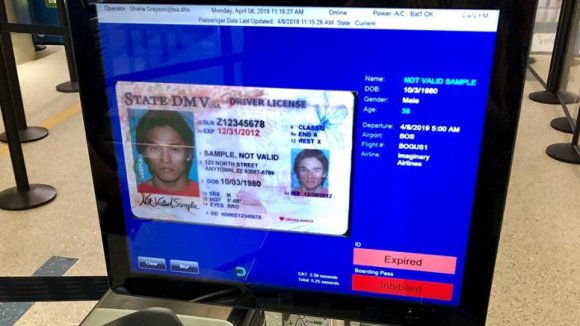The U.S. Transportation Security Administration (TSA) is working toward wide-scale deployment of new passenger identity verification technology.
Now fully deployed at Baltimore-Washington Marshall International Airport (BWI) security checkpoints, the system is aimed at speeding the process in which TSA agents match IDs to boarding passes.
All TSA checkpoints at BWI are now equipped with second-generation credential authentication technology (CAT) units that utilize cameras to match a passenger’s face in real time with his or her ID image. “The technology enhances detection capabilities for identifying fraudulent documents at the security checkpoint,” the TSA says in a statement, adding that the photos “are not saved” and used only “to match the person standing at the travel document checking podium with the photo on the ID that is being presented.”
TSA says the CAT-2 systems are self-service, eliminating the need for passengers to hand IDs to TSA agents for verification at the beginning of the checkpoint.
The equipment, rolled out in 2022 on a limited basis at some U.S. airports, including Denver International (DEN), will be placed in airports across the country following TSA’s signing of a $128 million contract in late April with Idemia Identity and Security USA, the developer of the second-generation CAT systems.
“These systems substantially improve identity verification, validate the authenticity of a passenger’s identification credential, confirm pre-screening status and validate flight reservations,” TSA says in a statement. “The second generation CAT-2 systems allow for automated identity verification with an integrated camera for biometric and self-service capabilities. This new contract with Idemia will enable TSA to test, manufacture, procure and deploy over 1,500 new CAT-2 systems to airport security checkpoints nationwide.”

 LinkBack URL
LinkBack URL About LinkBacks
About LinkBacks



 Reply With Quote
Reply With Quote

Bookmarks